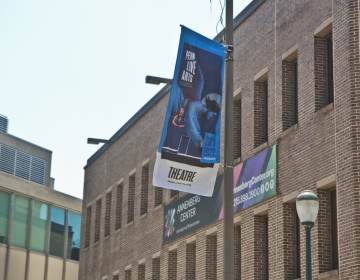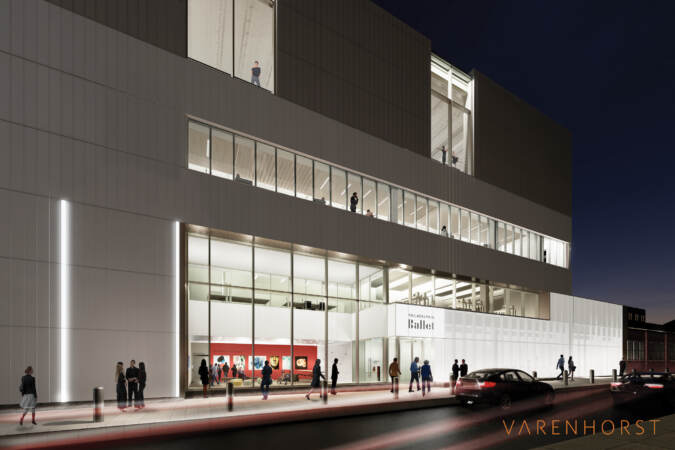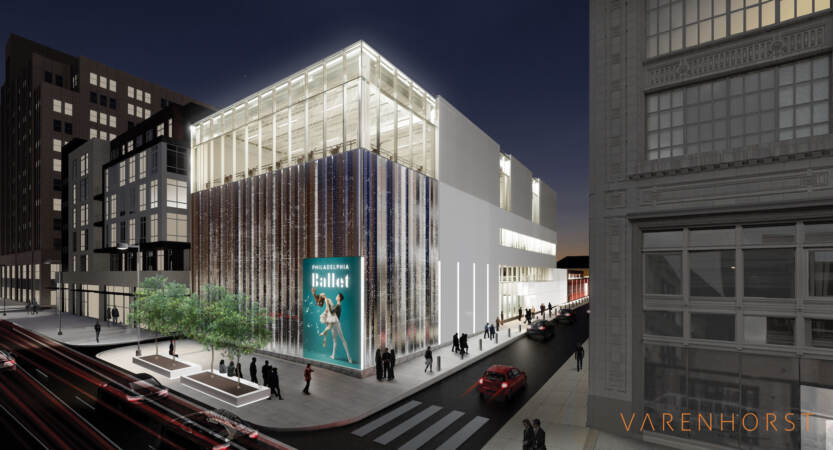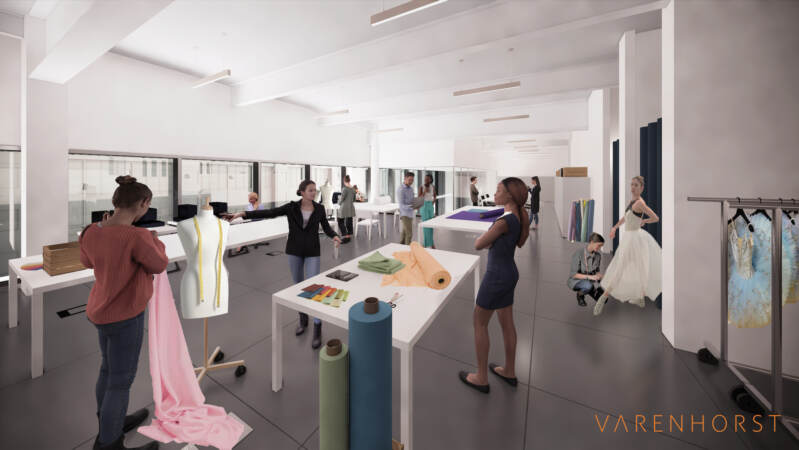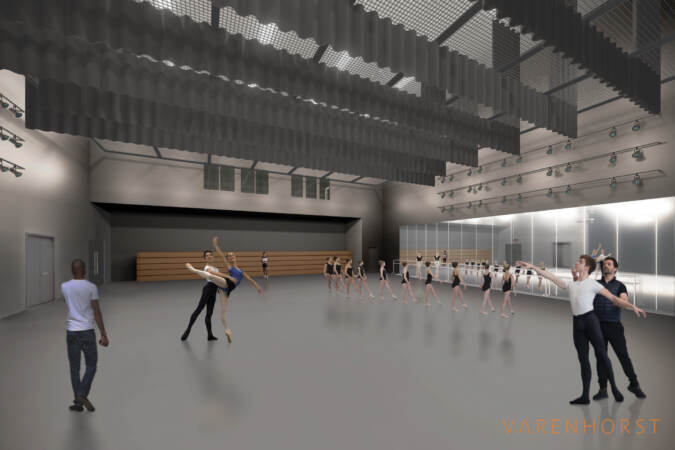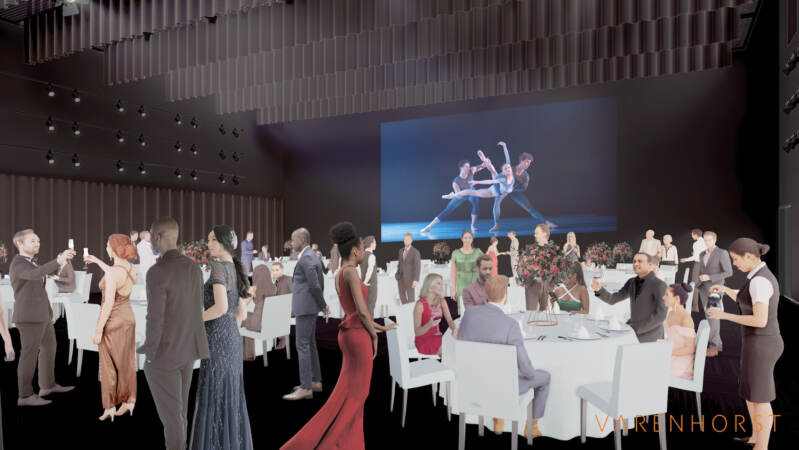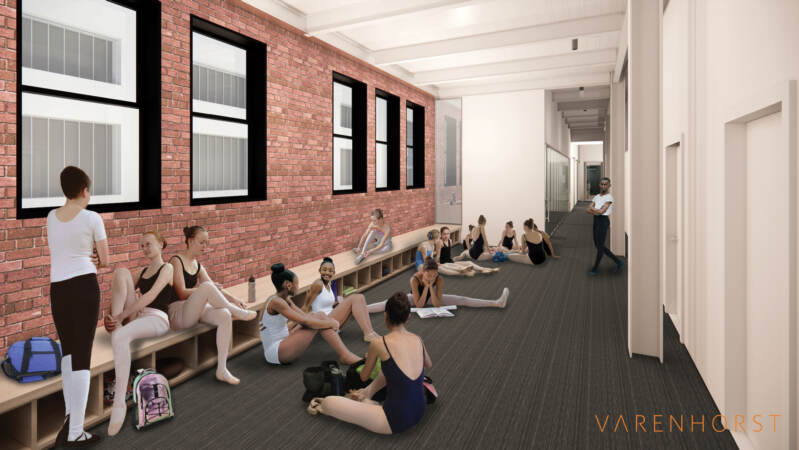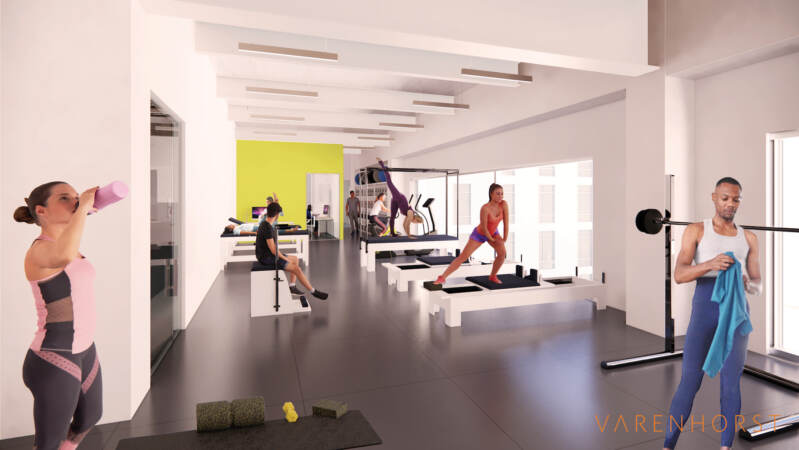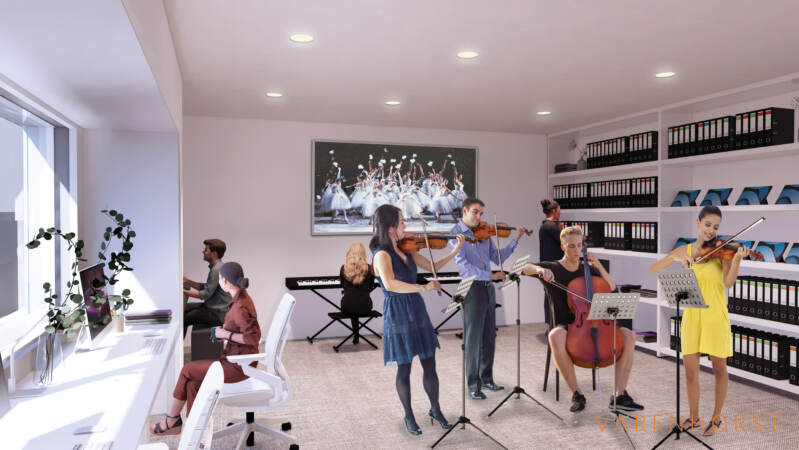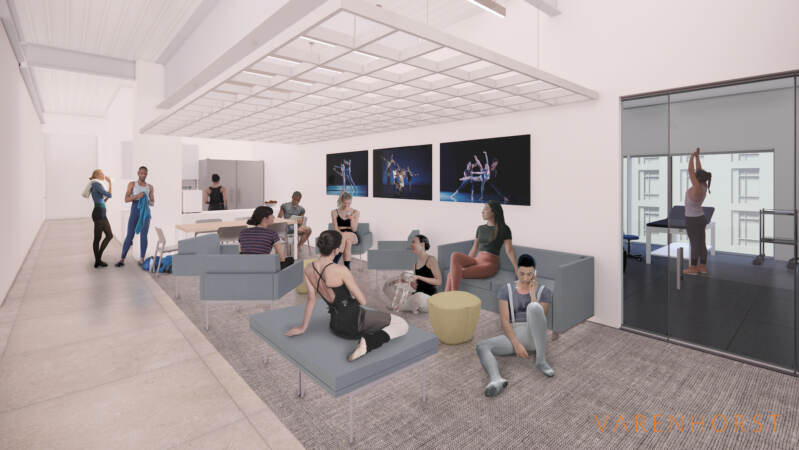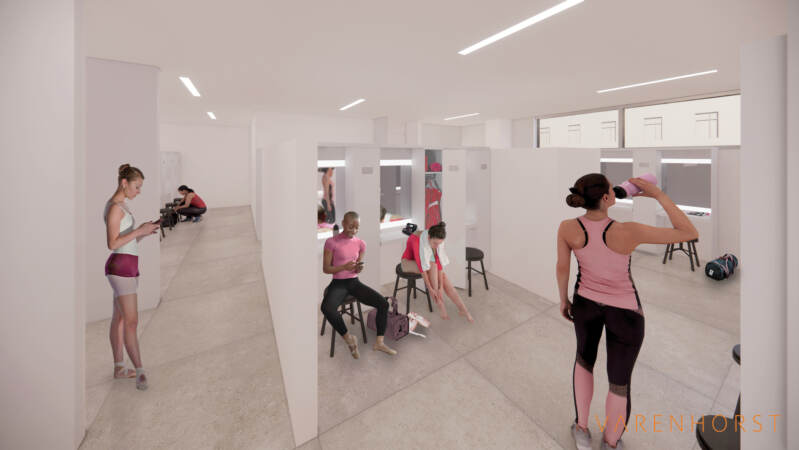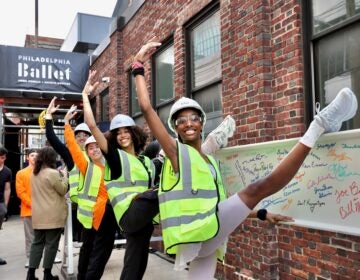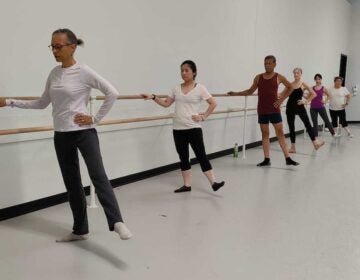Philadelphia Ballet breaks ground on new building, quadrupling its size
The 59-year-old dance company broke ground on a 48,000-square-foot addition, nearly quadrupling its size in a burgeoning North Broad arts district.

Philadelphia Ballet artistic director Angel Corella (center) and executive director Shelly Power (in pink), joined by donors and poltical figures, participate in a ceremonial groundbreaking for the company's new building on North Broad Street. (Emma Lee/WHYY)
The Philadelphia Ballet has ceremoniously broken ground on a new building that will nearly quadruple the size of its home on North Broad Street.
Construction of the new five-story building of glass and steel, which will contain a black-box performance space, rehearsal spaces, and administrative offices, is expected to begin early next year at an anticipated cost of $35 million.
Once finished, it will be the first time all of the company’s operations will be under one roof. Over its 59-year history, the Philadelphia Ballet has been bouncing from Center City to South Broad to East Falls to North Broad, without ever having its administrative offices and rehearsal spaces in the same place.

The new construction, expected to be completed in 2024, will ground the entire organization in a flagship building, and add one of the city’s major arts institutions to a developing North Broad arts district.
The launch of construction has been a long time coming. The Ballet acquired the land 15 years ago and had plans for the new building in its pocket for at least 10 years. During that time the company had a complete turnover of leadership – including the board chair, executive director, and artistic director – and changed its name from Pennsylvania Ballet.

At the ceremonial groundbreaking on Thursday, executive director Shelly Power addressed a gathering of about 200 people under a tent on the vacant lot at 323 North Broad.
“I’m afraid I might get a little emotional,” she said, before pausing to gather her breath.
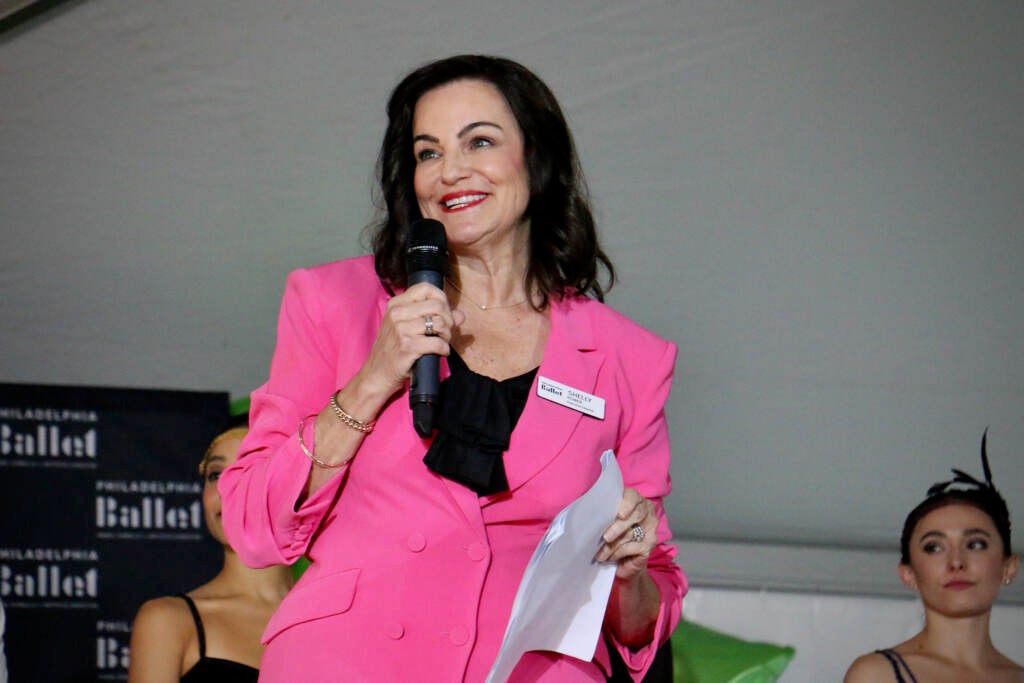
“When I first met David Hoffman and Louise Reed [the current and former board chairs] they said to me, ‘Shelly, we have to finish our home,’” she said. “That was five years ago.”
The Ballet is currently housed in a 15,000-square-foot converted trucking garage set back from Broad Street behind the site of the new building. It has three rehearsal studios, shared by the professional company and its school. The two legs of the organization literally trip over themselves in the cramped hallway connecting the studios.

None of its rehearsal spaces are as large as the stage of the Academy of Music, where the Ballet performs its major productions. It’s nearly impossible to rehearse the entire company in the same rehearsal space.
“If you go across the country, the average – and I’m talking about companies that are smaller than us and bigger – the average is about 50,000 square feet. We’ve been working in 15,000 square feet,” said Power. “It’s really Philadelphia’s moment to be able to catch up with the rest of the cities: Cincinnati, Kansas City, Milwaukee, Chicago.”

Power said the new building will add about 48,000 square feet, giving the professional company and the school their own respective dance studios with separate entrances. Dance students will have a space to do homework between classes, and parents will have a space to sit and have coffee while their kids are in class.
The design offers opportunities for the public to engage with the dance company, featuring a flexible black-box space that can be used for both performances and events. The lobby to the black box can function as an art gallery and public space for gatherings and receptions.
The professional dance company will occupy studio spaces on the upper floors of the new building, occasionally using the ground floor black box studio where fans and students can watch rehearsals up close.
Power said fostering direct connections between professional dancers and the public is critical to building the next generation of dancers, to show how dancing builds character.
“When the curtain goes up, you’re live. It’s not like you’re on your phone or watching a YouTube video where you can edit. It’s an experience in that moment,” she said “Which is really precious right now, especially with all the technology and the shutdown of COVID. We’ve got to get kids back into that mode of being comfortable with that, because they’ve been behind a screen.”

Currently, the Ballet’s dance school can accommodate about 200 students, some with professional aspirations who relocate from out of state to train. The size of the school is expected to triple after the new construction, and include more casual, non-professional training and classes for adults.
Power said about $22 million has been raised toward the new building, or about 62% of the projected cost.
The groundbreaking ceremony attracted a roster of elected officials, including Councilman Mark Squilla, who was excited to see a major cultural development in his district.
“It will activate North Broad Street here, it will be part of the growth of our arts and culture community, and it was something that could be sustainable so that we can have Philadelphia Ballet here forever,” he said.
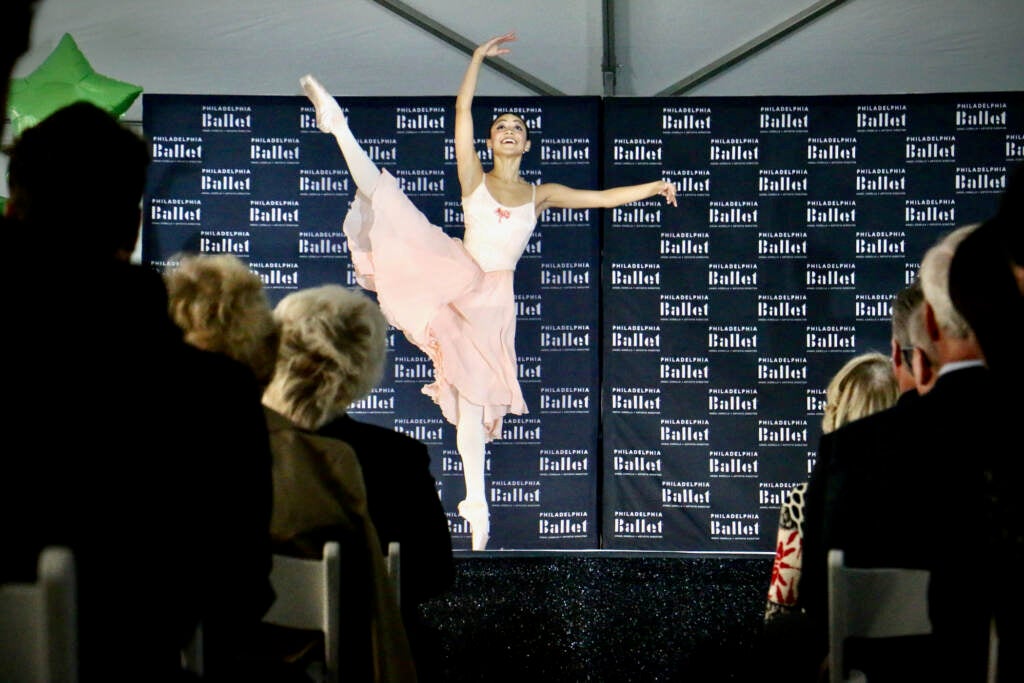
Squilla pointed to the political support who came to the groundbreaking, including state representative Mary Isaacson, and state senators Nikil Saval and Vincent Hughes.
Hughes, who is the Democratic chair of the state appropriations committee, suggested the Commonwealth would give ongoing support to the dance company by promising “the state will be dancing with the Philadelphia Ballet,” without giving details.
Power was decidedly not emotional when she responded, “Senator Hughes, there will be someone over there with a document you can sign about state funding.”

Saturdays just got more interesting.
WHYY is your source for fact-based, in-depth journalism and information. As a nonprofit organization, we rely on financial support from readers like you. Please give today.



